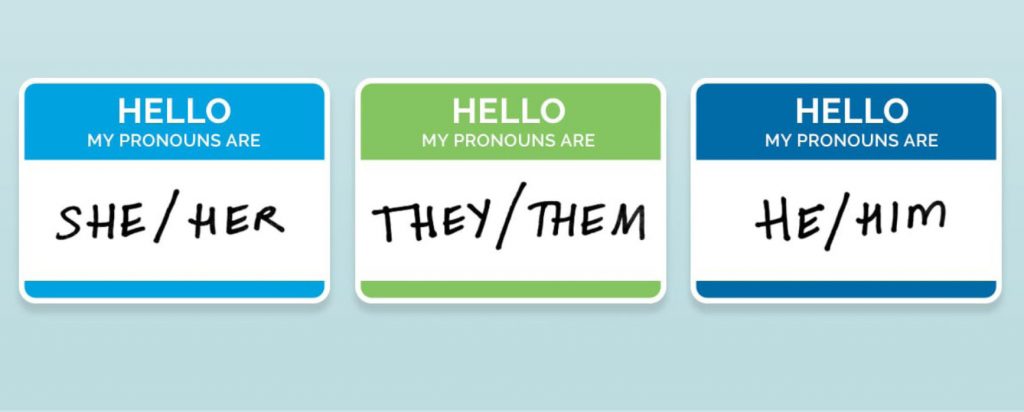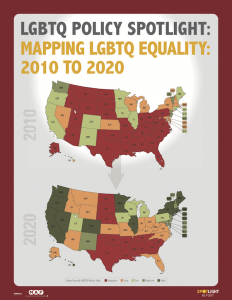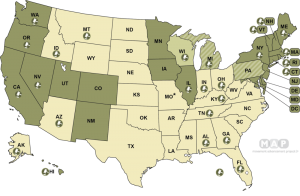
As more and more companies move from “policy to practice” and imbue their cultures with a greater degree of inclusivity, the listing of preferred pronouns in company-related communication vehicles such as email has become much more prevalent.
To this end, my friends at Out and Equal Workplace Advocates have created another wonderful resource full of practical guidance on implementing successful practices around pronouns in your workplace….read more
 We have come a long way in ten years concerning LGBTQ equality in the workplace. HOWEVER, as you will see in this report from the Movement Advancement Project (MAP) there is still MUCH WORK to be done! This is of particular note for transgender individuals who still can be fired for coming out in 27 states (54%)!
We have come a long way in ten years concerning LGBTQ equality in the workplace. HOWEVER, as you will see in this report from the Movement Advancement Project (MAP) there is still MUCH WORK to be done! This is of particular note for transgender individuals who still can be fired for coming out in 27 states (54%)!
Mapping LGBTQ Equality: 2010 to 2020 presents a fresh perspective on the current status of LGBTQ equality in the states by examining MAP’s policy tally, encompassing nearly 40 LGBTQ-related laws and policies across all 50 states, the District of Columbia, and the five U.S. territories as of January 1, 2020. The report also compares the current status of LGBTQ policy landscape to the status of these same laws as of January 1, 2010.
 Last summer I had the pleasure of presenting a workshop at the Gender Health Conference: Inland Region held on the UC Riverside campus in Riverside, California. To those that are familiar with my work, the title of the workshop “What’s Happening in Today’s Workplace for the Transgender & Gender Non-Conforming Community” should come as no surprise. But you may ask yourself, “why is that topic being discussed at a conference focusing on the health of the transgender, intersex and queer communities?”
Last summer I had the pleasure of presenting a workshop at the Gender Health Conference: Inland Region held on the UC Riverside campus in Riverside, California. To those that are familiar with my work, the title of the workshop “What’s Happening in Today’s Workplace for the Transgender & Gender Non-Conforming Community” should come as no surprise. But you may ask yourself, “why is that topic being discussed at a conference focusing on the health of the transgender, intersex and queer communities?”
The answer, oddly enough, is very straightforward: If you are trans, intersex or queer-identified and not employed, you do not have access to healthcare. But it doesn’t stop there. If you are not employed, you do not have . . . access to housing. If you are not employed, you don’t have access to . . . a rewarding quality of life. If you are not employed, you don’t have access to . . . a lot of things that many of us simply take for granted…read full article



